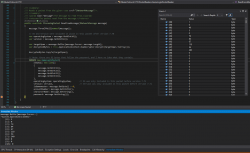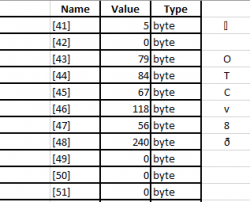Heyo, does anyone know of an easy way of categorizing the agent (i.e. the client) into OTClient / Vanilla on player login?
I've observed, at least for client 7.72 that there are 92 trailing bytes [0] after the password on a a Player login in packet.
I've went through some distro sources but none seem to parse or even read these bytes, which for OTCv8 contain a string [1], but for the vanilla client seem to be random.
Particularly interested for version 7.72, but if there is a general solution it'd be best, and also if this behavior is consistent in other OTC and vanilla versions? (I've been absent for a while and lost track of changes through years).
Does anyone recall what these bytes contain in the vanilla client?
Thanks!
[0]:

[1]:

I've observed, at least for client 7.72 that there are 92 trailing bytes [0] after the password on a a Player login in packet.
I've went through some distro sources but none seem to parse or even read these bytes, which for OTCv8 contain a string [1], but for the vanilla client seem to be random.
Particularly interested for version 7.72, but if there is a general solution it'd be best, and also if this behavior is consistent in other OTC and vanilla versions? (I've been absent for a while and lost track of changes through years).
Does anyone recall what these bytes contain in the vanilla client?
Thanks!
[0]:

[1]:

